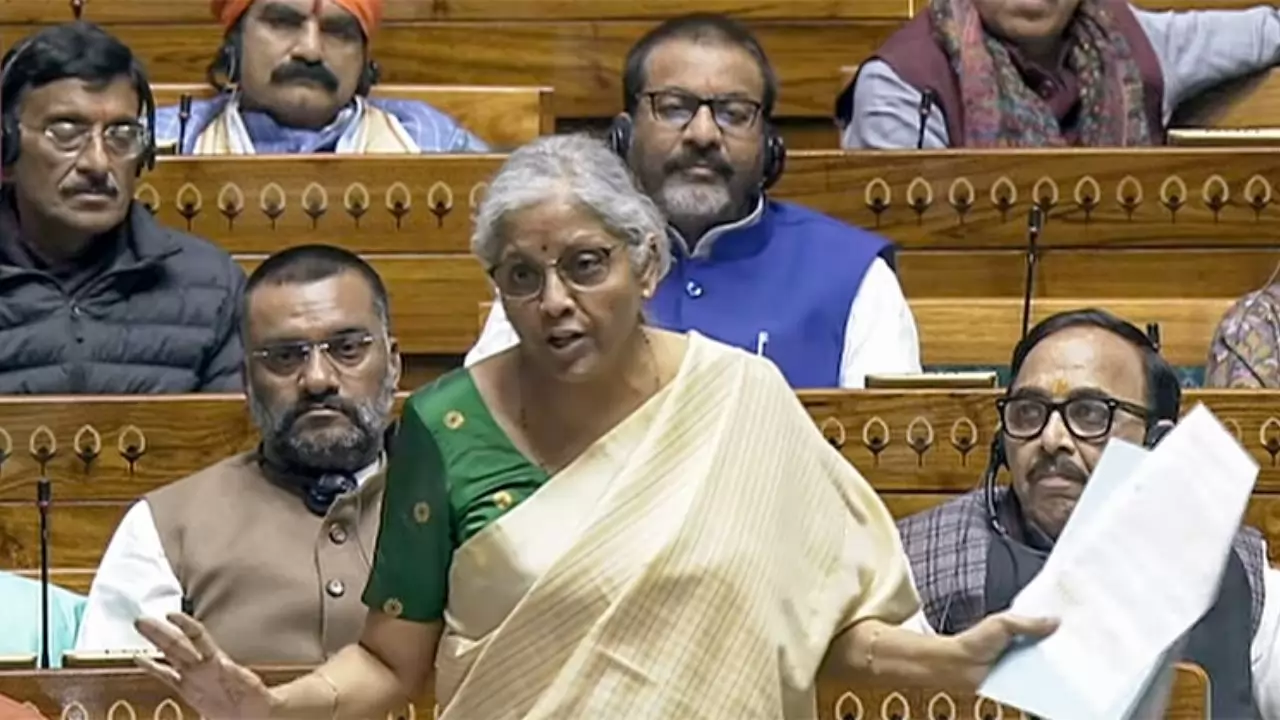
ANI
Lok Sabha Elections 2024: The recently released 'White Paper on the Indian Economy' by the Union Ministry of Finance has stirred controversy, drawing attention to economic matters just ahead of the Lok Sabha elections. While the document appears factually accurate on the surface, critics argue that it selectively presents data to highlight the failures of the previous UPA government while glossing over its own shortcomings and the successes of the UPA era.
The white paper acknowledges India's inclusion in the "fragile five" global economies by Morgan Stanley in 2013 and its current position among the top five based on GDP size. However, it fails to acknowledge that India was not part of the "fragile five" during the entire 10-year tenure of the UPA from 2004 to 2014. Despite facing the Global Financial Crisis, India witnessed rapid growth between 2004 and 2009, Indian Express reported.
Moreover, a standout feature of the UPA era was the rapid economic growth witnessed between 2004 and 2008 — a period marked by India's fastest growth rates, coupled with relatively moderate levels of inflation. However, the White Paper takes a different stance, attributing this growth to the AB Vajpayee-led coalition: "In the years between 2004 and 2008, the economy grew fast, thanks to the lagged effects of the reforms of the NDA government and favourable global conditions."
Similarly, the initial term of the UPA not only experienced swift growth and subdued inflation but also showcased India's strongest fiscal performance. Since the initiation of the FRBM Act in 2003, India has adhered to its mandate only once — in 2007-08. Conversely, the NDA has failed to meet the FRBM target even once over the past decade. In 2018, it went as far as diluting the mandate itself and ceased targeting revenue deficit.
Likewise, another notable achievement of India's economy was its resilience during the Global Financial Crisis of 2008. While the GFC proved to be a pivotal moment for most major economies in the first decade of the new millennium, with many still struggling to fully recover, India managed to maintain its GDP growth rate with minimal setbacks, unlike most other nations apart from the US. However, the white paper downplays the significance of this achievement and fails to acknowledge the role of timely fiscal stimulus measures in facilitating economic recovery.
While acknowledging certain achievements of the NDA government, such as the implementation of GST and IBC, critics highlight ongoing challenges, including employment-related stress and stagnant wages. Despite a decline in the unemployment rate, the quality of new jobs remains poor and inflation levels have remained uncomfortably high, failing to meet the 4 per cent mark recommended under the monetary policy framework.
The 'White Paper on the Indian Economy' has sparked debate regarding its selective presentation of data and failure to acknowledge the successes of previous governments. As the nation approaches the Lok Sabha elections, economic issues continue to be a focal point of discussion, highlighting the importance of transparent and comprehensive economic analyses.





Copyright © 2025 Top Indian News
